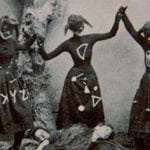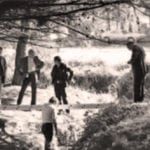 Movies and TV
Movies and TV  Movies and TV
Movies and TV  History
History 10 Extreme Laws That Tried to Engineer Society
 History
History 10 “Modern” Problems with Surprising Historical Analogs
 Health
Health 10 Everyday Activities That Secretly Alter Consciousness
 History
History Top 10 Historical Disasters Caused by Someone Calling in Sick
 Animals
Animals 10 New Shark Secrets That Recently Dropped
 Movies and TV
Movies and TV 10 Forgotten Realities of Early Live Television Broadcasts
 Technology
Technology 10 Stopgap Technologies That Became Industry Standards
 Weird Stuff
Weird Stuff 10 Wild Facts About Taxidermy That You Probably Didn’t Know
 Travel
Travel 10 Beautiful Travel Destinations (That Will Kill You)
 Movies and TV
Movies and TV 10 Box Office Bombs That We Should Have Predicted in 2025
 History
History 10 Extreme Laws That Tried to Engineer Society
 History
History 10 “Modern” Problems with Surprising Historical Analogs
Who's Behind Listverse?

Jamie Frater
Head Editor
Jamie founded Listverse due to an insatiable desire to share fascinating, obscure, and bizarre facts. He has been a guest speaker on numerous national radio and television stations and is a five time published author.
More About Us Health
Health 10 Everyday Activities That Secretly Alter Consciousness
 History
History Top 10 Historical Disasters Caused by Someone Calling in Sick
 Animals
Animals 10 New Shark Secrets That Recently Dropped
 Movies and TV
Movies and TV 10 Forgotten Realities of Early Live Television Broadcasts
 Technology
Technology 10 Stopgap Technologies That Became Industry Standards
 Weird Stuff
Weird Stuff 10 Wild Facts About Taxidermy That You Probably Didn’t Know
 Travel
Travel 10 Beautiful Travel Destinations (That Will Kill You)
10 Horrifying Facts About The Voodoo Murders Of Clementine Barnabet
Before becoming the malignant religion known as “voodoo,” vodun or vodoun was the name for the ancestral customs and beliefs of West Africa. Most closely associated with the Fon people of modern Benin, vodun, with its talk about spiritual possession and examples of ecstatic worship, appeared to be nothing less than devil worship to the first Europeans who encountered it. Even though Francophone and Lusophone vodun, as practiced in places like Haiti, Louisiana, and Brazil, contains many Roman Catholic elements and profess a veneration of Jesus and Mother Mary, “voodoo” is still a byword for diabolism.
See Also: 10 Things You Didn’t Know About Voodoo
This was especially true at the turn of the 20th century. Back then voodoo was synonymous with the “barbaric” practices of deepest, darkest Africa and her descendants in the United States and the West Indies. Whenever strange killings occurred in New Orleans or the swamps of Florida, it was common to put the blame of voodoo. This was especially true when the victims and perpetrators were black.
Between 1911 and 1912, voodoo was cited as the root cause for a string of terrible ax murders in Louisiana and Texas. The unusual killer, a supposed voodoo priestess named Clementine Barnabet, ultimately managed to escape into the bayou before meeting the hangman’s noose. But before escaping from reality into legend, Barnabet hinted at something as frightening as it was fantastic. Was there a murderous voodoo cult at work? Read on and find out.
10 The First Bloodletting

West of Lafayette, Louisiana is the city of Crowley. There, on February 11, 1911, homicide investigators found the dead bodies of Walter J. Byers, his wife, and their young son. Judging from the evidence at the crime scene, the unknown assailant had entered the Byers home from the rear window of nearby house. That other house was located in the “colored quarter” of the city. This meant one thing to the investigators—the killer was black.
Bloodletting wasn’t unusual in Crowley, especially in the colored side of town. However, this crime was different. The sleeping Byers family had been “brained with an ax”. Besides being unimaginably cruel, the killer also appeared to be brazen. He or she hadn’t bothered to hide the murder weapon, as the blood-splattered ax was found dripping gore on the floor inside of the Byers family home.
9 The Swing of the Ax
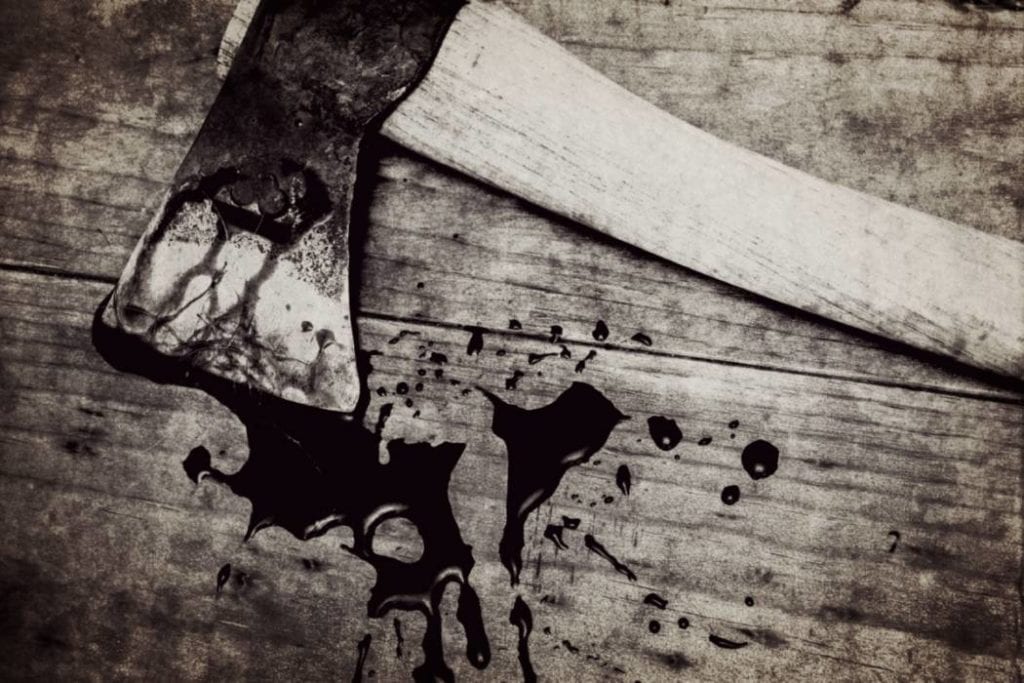
Less than two weeks later, on the morning of February 24, 1911, Nina Martin’s usual morning routine was interrupted. At approximately 7:00 a.m., Nina and her Lafayette, Louisiana home became adjacent to a crime scene when her son, Lezimie Felix, burst into the kitchen and said that Nina’s sister and brother-in-law had been murdered. Nina rushed over to her sister’s home and found an abattoir: Alexandre Andrus and his wife Meme (some sources write Mimi), along with their son Joachim and daughter Agnes, were found murdered. Just like in the Byers case, the murder weapon was an ax and it was found at the foot of the family’s bed.
Four days later, the “Lafayette Advertiser” ran a short article quoting Deputy Coroner Clark, who asserted that the deceased had been “brained with an ax”. The article included other shocking facts, some of which were surely provided by Sheriff Louis LaCoste. Namely, the newspaper noted that the Andrus family had been killed while they slept, probably sometime after midnight. Alexandre and Meme had been moved after death, with the killer putting them in a kneeling position beside the bed. Alexandre and Meme appeared to be praying.
Sheriff LaCoste and his men suspected that the murderer of the Andrus family was also the killer of the Byers family. Better yet, Sheriff LaCoste named their primary suspect—a recently escaped lunatic named Garcon Godfry.
8 Murder Moves to Texas
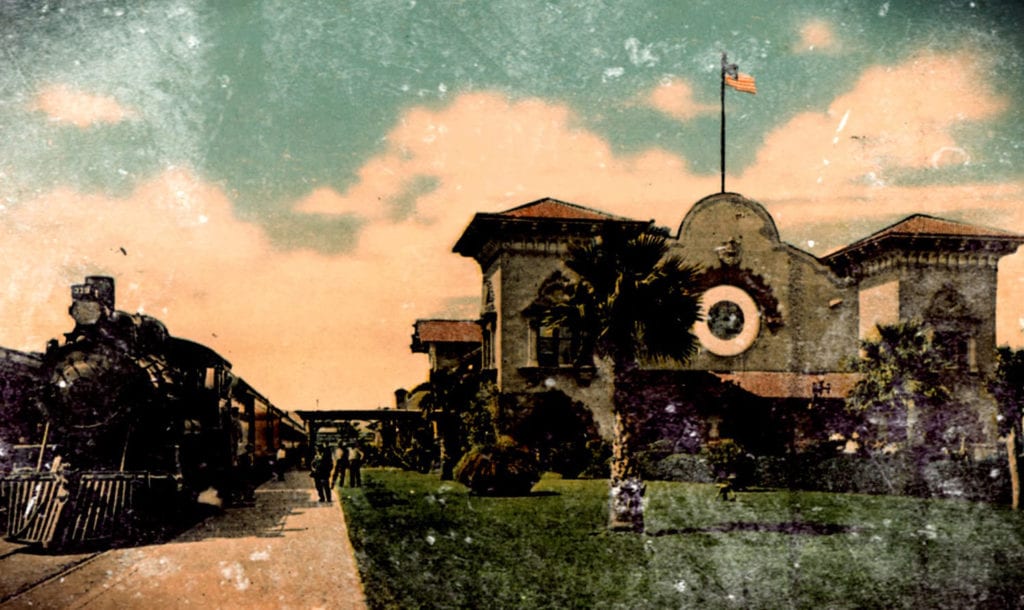
The next killing occurred outside of Louisiana. On March 22, 1911, Louis Cassaway, his wife, and their three children suffered the same awful fate as the Andrus and Byers families. They too were mercilessly bludgeoned to death with an ax.
As similar as the murder of the Cassaway family seemed to the previous crimes, there were some major differences that caught investigators by surprise. First of all, the Cassaway family lived in San Antonio, Texas (several sources say Beaumont, Texas). Second, while all of the previous victims had been black, one of the victim’s in this case, Mrs. Cassaway, was white. This fact initially convinced detectives that a hatred of mixed-raced couples was at the root of this awful crime.
After the murder of the Cassaways, Sheriff LaCoste had a new suspect in the form of Raymond Barnabet. Barnabet was a petty criminal and sharecropper who lived in Lafayette. Raymond had a long rap sheet and was known to have a violent temper. The case against Raymond broke wide open when his mistress approached police and told them that Raymond had confessed to committing murders during one of their frequent quarrels.
7 The Trial of Raymond Barnabet
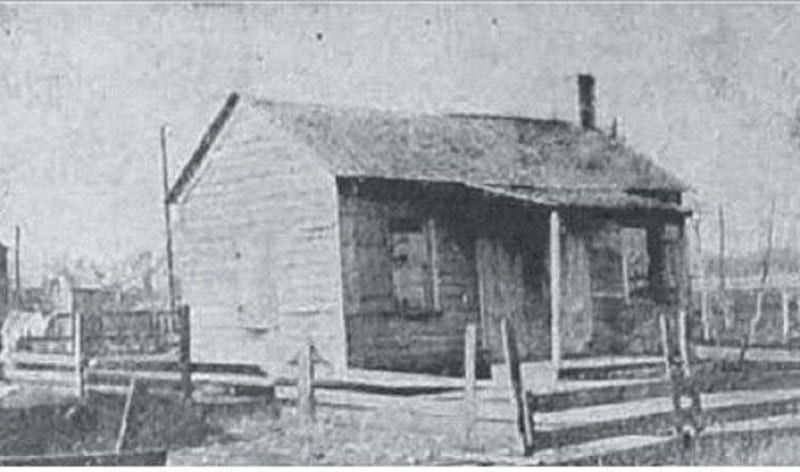
In the autumn of 1911, Raymond Barnabet stood trial in Louisiana for the murders of three whole families. Zepherin and Clementine Barnabet, Raymond’s own children, testified against their father. While on the witness stand, Clementine Barnabet told a graphic story about how her father came home one night covered in blood. Zepherin seconded this story, and he went one step further by claiming that Raymond had announced one night that he had “killed the whole damn Andrus family”.
Then as now it was highly unusual for children to testify against their parents. However, Clementine and Zepherin justified their actions by claiming that they were terrified of their father. It was better for everyone if Raymond Barnabet, a lifelong criminal, was behind bars. In October 1911, a Louisiana jury convicted Raymond Barnabet of murder. This conviction would not last to the end of October, but Raymond would remain confined until November 1911. He was let go because another murder proved his innocence.
6 More Murders
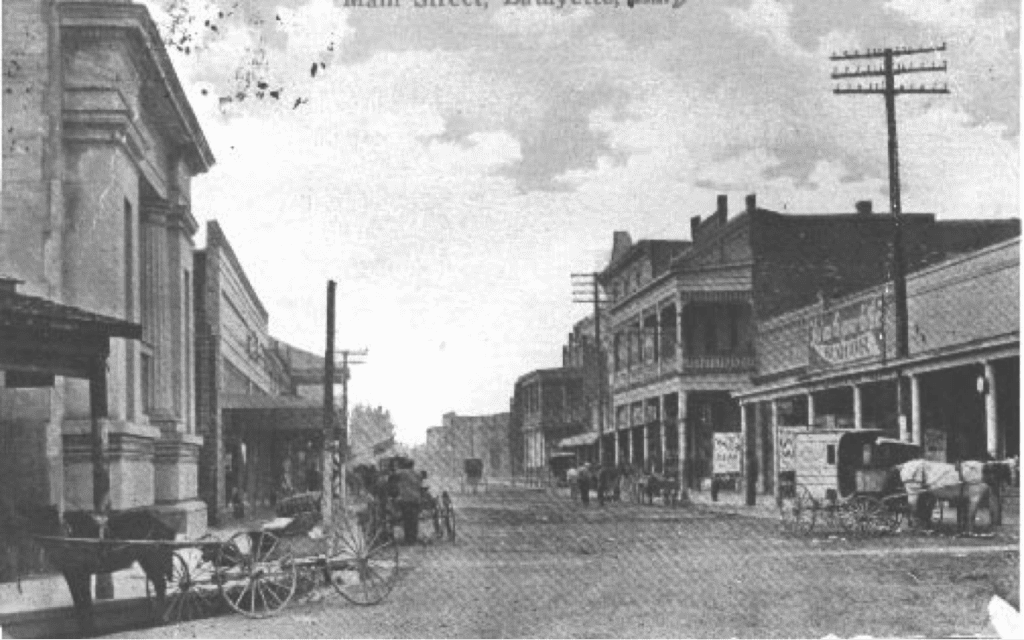
On October 27, 1911, Raymond Barnabet was granted a new trial. The reason for this decision was threefold: Raymond had been drunk throughout the earlier trial, thus calling his testimony into question; the jury had failed to follow the judge’s instructions during deliberation; and the prosecution had never bothered to offer a motive for the murders.
While Raymond languished in the Lafayette Parish Jail, police in Lafayette stumbled upon a new crime scene. On November 27, 1911, the bodies of Norbert Randall, his wife Azema, and the four children were found murdered inside of their cabin located on Lafayette Street. Like the others, 8-year-old Albert Sise, 6-year-old Renee Randall, 5-year-old Norbert, Jr., and 2-year-old Agnes had been beaten to death with the blunt side of an ax. Norbert had been shot in the head before he too was brained with an ax. As per usual, the murder weapon was found at the crime scene, although police discovered that this ax had been partially washed.
5 Another Guilty Barnabet
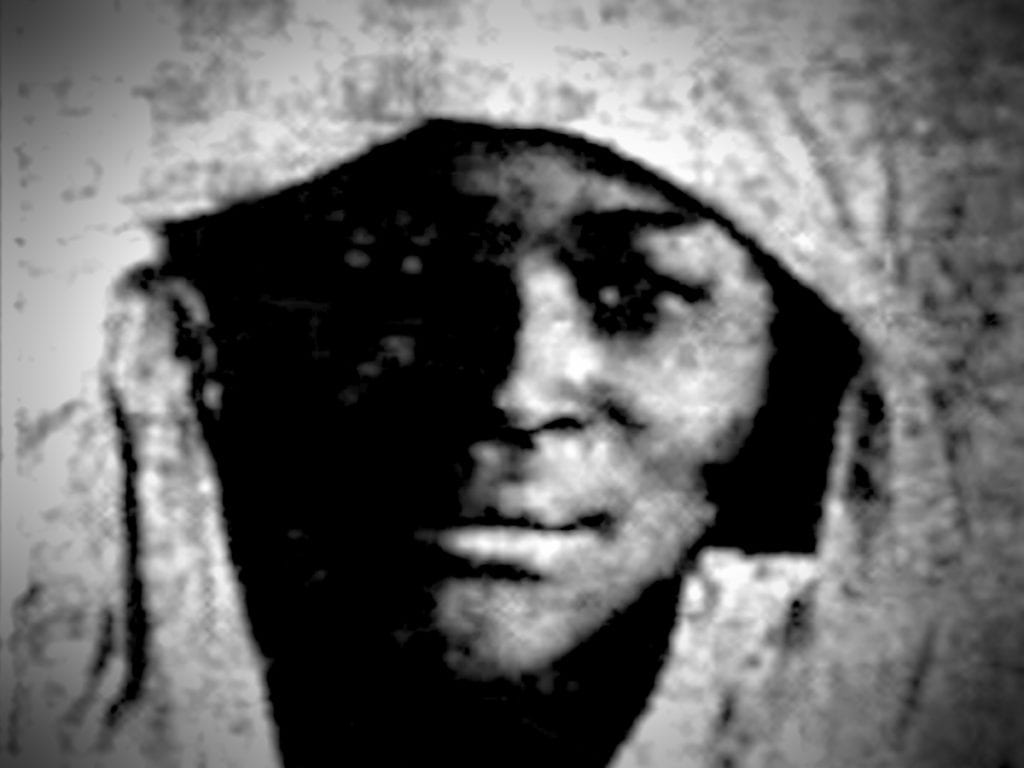
The horrific slaying of the Randall family sent the citizens of Lafayette into a panic. Rumors circulated that the Randall children had been mutilated by their killer. Because of this, well over 150 people met at the Good Hope Baptist Church in Lafayette. The meeting reminded citizens to sleep with weapons nearby. It also demanded action from the police. Namely, the good, God-fearing people of Lafayette thought that the police should look at other members of the Barnabet family.
When police returned to the Barnabet family home in search of new evidence, they found several sets of bloody clothes belonging to 17-year-old Clementine. The specific objects of horror included a suit of woman’s clothing covered in blood and brain matter. Blood was also found on the door leading to Clementine’s room.
Although few believed then that a 17-year-old woman could carry out such gruesome crimes, Clementine was arrested and set to the same Lafayette Parish Jail as Raymond Barnabet.
4 Ritualistic Killings?

While both Raymond and Clementine Barnabet languished in jail, a killer used a blood-hungry ax to snuff out another family. In Janauary 1912, the Broussard family of Lake Charles, Louisiana—father Felix, his wife, and their three children—were ambushed by a mad killer. This crime scene was the most shocking of all. It not only suggested that Louisiana was the home of a crazed serial murderer, but also a serial murderer who appeared to know a thing or two about the occult.
The murdered Broussard children had had their blood drained into buckets left at the said of their beds. A message written in blood was left on one of the home’s walls. It read: “When he maketh the inquisition for blood, He forgetteth not the cry of the humble”. For decades this inscription has been cited as coming from Psalm 9:12 of the King James Bible. However, the King James Bible actually reads: “When he maketh inquisition for blood, he remembereth them: he forgetteth not the cry of the humble”. The biblical quotation left behind at the Broussard crime scene was actually taken from the novel “Uncle Tom’s Cabin,” which had originally misquoted the verse.
Other facts of the Broussard crime scene were soon sensationalized by the regional media. The “El Paso Herald” of El Paso, Texas called the murders a “sacrifice” and noted that the youngest victims had been found with their fingers splayed and secured with pieces of paper and pins. The words “Human Five” were found scribbled at the crime scene as well. The newspaper wasted little time in blaming “voodoo worshippers” for the murders.
3 Clementine Barnabet, Voodoo Murderess
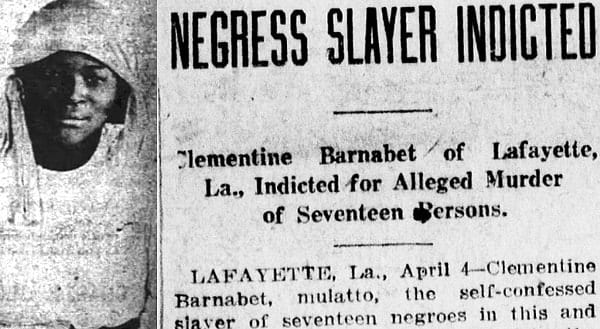
Despite being behind bars at the time of the Broussard family murders, Clementine Barnabet confessed to having a hand in the killings. Clementine, whose demeanor and behavior was deemed odd by investigators and newspapermen alike, also claimed that she was responsible for more murders than the public knew about. Clementine ultimately confessed to her involvement in the murder of some 35 people between 1911 and 1912. Seventeen of these victims were reportedly murdered by Clementine herself.
After her confession, Clementine was examined by several doctors, most of whom deduced that she was perfectly sane. Due to the severity of her crimes, Clementine was sent to the infamous Angola State Penitentiary near the Louisiana state capital of Baton Rouge. On July 31, 1913, Clementine tried to escape from prison, but was captured by officers on the same day. For whatever reason, this escape attempt was forgotten, and in 1918 Clementine was given the job of cane cutter. This meant that Clementine was allowed to work outside with minimal observation. Five years later, on Saturday, August 28, 1923, Clementine Barnabet was allowed to leave Angola due to years of good behavior.
The story of Clementine Barnabet remained a mystery until just a few years ago. According to one Internet user named “voodoogalll,” she visited her 103-year-old great grandmother in 1985. During that visit, the pair were joined by another woman who told them all a story about a forgotten string of voodoo murders. That same year, after the mysterious storyteller died, “voodoogalll” and other attendees at the funeral noticed that a youthful picture of the woman matched newspaper photographs of serial killer Clementine Barnabet.
2 The Church of Sacrifice
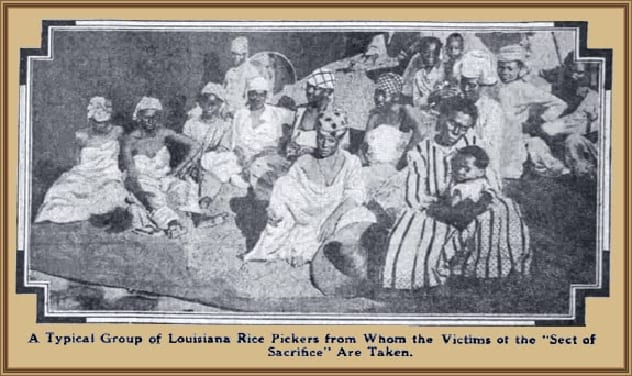
As part of her confession, Clementine Barnabet claimed that she belonged to a secret cult known as the Church of Sacrifice. This cult and its secretive “Human Five Gang” were supposedly part of the Christ Sanctified Holy Church, an evangelical church headed by a man named King Harrison. The church could be found all along the Southern Pacific Railroad, and according to Clementine’s confession, Harrison encouraged his congregation to use lethal discipline against any wayward members. Clementine said that the Randalls were an example of such backsliding. On top of all of this, Clementine also told Louisiana authorities that she was a voodoo sorceress who enjoyed supernatural protection from punishment.
Sheriff LaCoste and others investigated Clementine’s claims, but came up empty in almost every instance. District Attorney Howard E. Bruner, who categorized Clementine as a “moral pervert” because she admitted to “caressing” some of the corpses after killing them, believed that most of the murders Clementine admitted to were copycat crimes.
Several years later, in 1942, when the Federal Writers Project wrote down the history of Clementine’s trial, they noted that confusion was the one constant in the case. In fact, given that newspapers had already suggested that a voodoo cult was behind the murders, Clementine could have been influenced by such coverage and cooked up the Church of Sacrifice as part of her confession. Tragically, after Clementine’s story circulated around the Southeast, many white citizens began to suspect that their black neighbors belonged to the murderous Sacrifice Church. This belief led to a handful of violent encounters and false arrests.
1 The Man From the Train
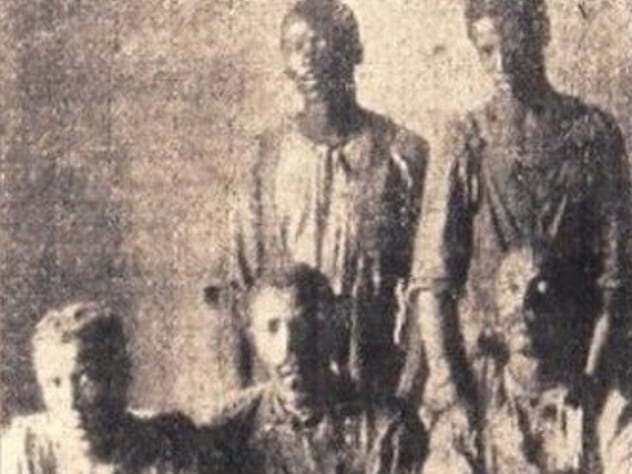
In their 2017 book, “The Man from the Train,” writers Bill James and Rachel McCarthy James make the case that a slimy German immigrant named Paul Mueller is in fact the deadliest serial killer in American history. After murdering the Newton family of Westbrook, Massachusetts in 1897, Bill and Rachel James believe that Mueller began traveling the railroads in America and Canada, murdering entire families along the way. His death toll was somewhere around 90. Mueller’s crimes almost always saw him break into homes after midnight and murder all of the occupants with the blunt side of an ax. Mueller also had a habit of leaving his murder weapons at the crime scenes.
Although Bill and Rachel James accept that Clementine Barnabet confessed to committing multiple murders, they are convinced that most, if not all of the crimes associated with Clementine Barnabet were actually carried out by Mueller, aka the Man from the Train.
For more lists like this, check out 10 Strange Tales Of Voodoo Murder, and Top 10 Bizarre Magical Objects
